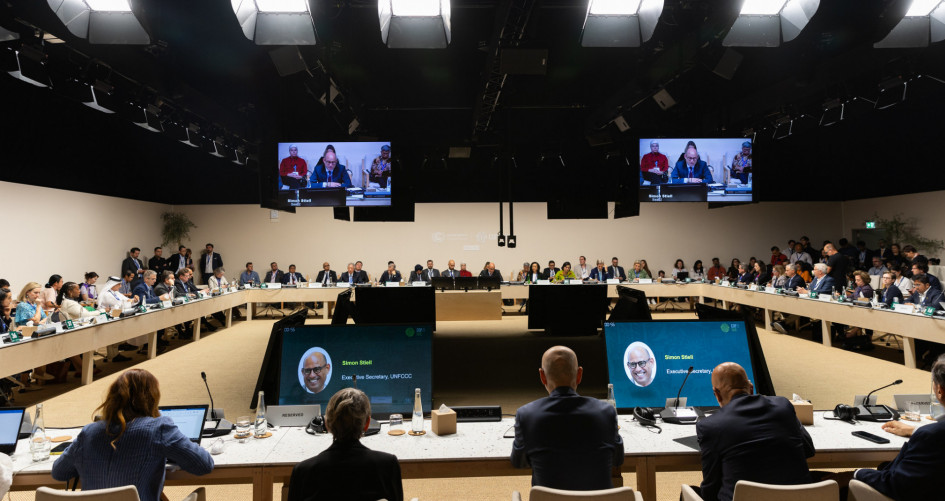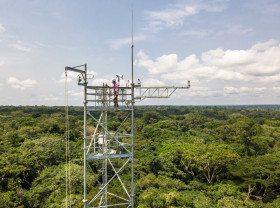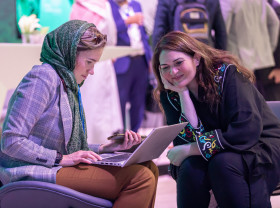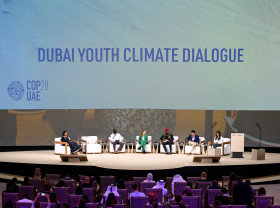The following is a transcript of a speech delivered by UN Climate Change Executive Secretary Simon Stiell during a roundtable on voluntary carbon markets at COP28.
The climate crisis is still outpacing countries’ efforts to contain it. 2023 will be the hottest year in human history. This is impacting millions of lives and resulting in trillions of dollars of damage and destruction all around the world.
To reach the goals of the Paris Agreement and limit warming to 1.5 degrees we need to cut emissions by 43% by 2030. That's just six very, very short years away.
The global stocktake showed us that we are not on track.
Not in pledges. Not in implementation. And certainly not in action.
Countries – in aggregate - are not doing enough yet. Nor are businesses, investors and cities.
So far, we have been strolling towards our climate targets when we need to start sprinting.
But the global stocktake also shows us we can respond and we can accelerate climate action. That we have the tools to fight climate change.
Carbon markets could be one of these tools – and one which can be deployed quickly and potentially at scale.
Markets can help us increase ambition and reduce emissions.
We need new project types, in agriculture, for power storage, for retiring fossil fuel assets, for green hydrogen, for green buildings and electric mobility. Projects that will help us to reach our goals, grow our economies, and prosper.
But if we expect to build tall – we need to make sure that we build on solid ground.
Voluntary carbon markets cannot substitute for government action. We need ambitious, credible plans from all Parties.
And voluntary markets cannot substitute for robust internal emission cuts by the private sector, this means it is ensured that emissions reductions are not substituted with offsets or carbon credits, in any scope of emissions.
This will require action to reverse deforestation and to expand carbon stocks in nature.
We need voluntary carbon markets that reinforce the Paris Agreement and supplement climate action, not undermine it.
This means a proper price on carbon.
To deliver reductions at scale there must be confidence in carbon markets. They must be trusted and recognized as valid solutions by businesses, governments and civil society.
This requires integrity, credibility, and transparency.
Safeguarding human rights and delivering sustainable development.
And robust implementation and oversight, with mechanisms to avoid double-counting.
No developing country that wants to utilize this tool should be left behind. Both in implementing their national climate plans and putting money towards adaptation.
Addressing all these concerns will realise the potential of carbon markets.
We have made considerable progress to ensure that these high standards are maintained, under Article 6.4 - the UN’s own carbon crediting mechanism, which we aim to have up and running next year.
Article 6.4 will provide countries with the opportunity to raise their ambition and fight climate change more affordably. It will also have robust regulations that safeguard social and environmental rights.
It can also be a source of climate finance for developing nations, with a share of proceeds going towards adaptation funding to build resilience to the impacts of climate change.
Countries will need significant support to build capacity, and to reap the benefits carbon markets can bring. UN Climate Change will help provide that.
We are already doing this through our regional collaboration centres. We want to collaborate and build capacity across the developing world, and we will need help in doing that too.
Together, this can help us shape the new era of the voluntary market, truly fit for a new era of climate action.
UN Climate Change Executive Secretary speech at voluntary carbon market roundtable on margins of COP28
4 /12/ 2023
执秘讲话稿



